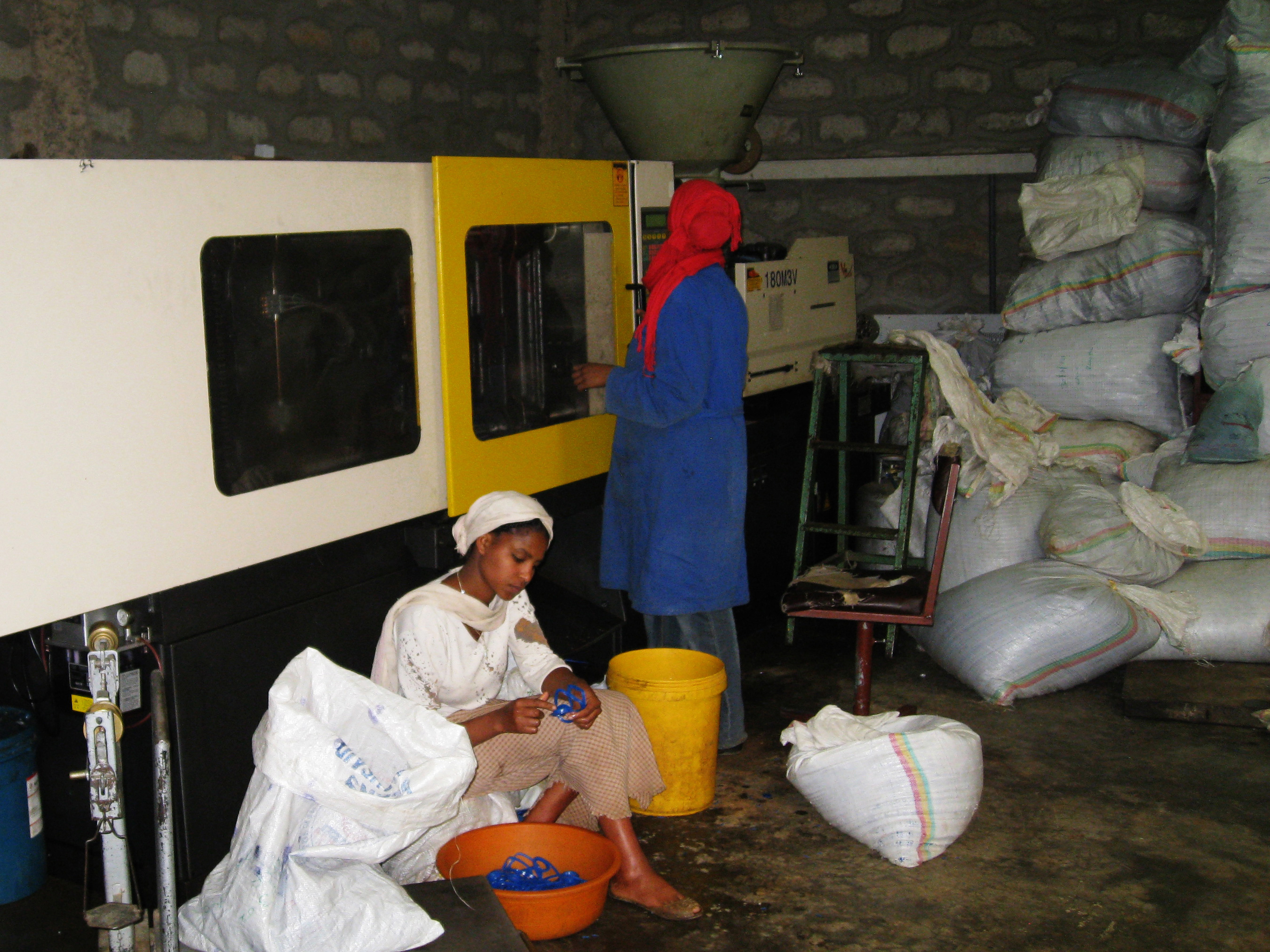Pros and cons of factory work, in new study from Ethiopia

New Haven, September 26, 2016 - A new study released by the National Bureau of Economic Research today looked at the impacts of taking a factory or industrial farm job on young workers in Ethiopia, and found that these industrial jobs gave unemployed people a steady income, but this came with substantial risks to their health.
Comparing job applicants who did and did not receive the job, researchers found that those offered industrial jobs did no better economically, and the industrial work came with longer hours, lower wages, and a doubling of serious health problems. Workers used factory jobs as a temporary safety net between other kind of work, including running their own businesses, and typically quit factory work as quickly as possible. Stimulating these business enterprises with capital, meanwhile, increased earnings for these workers by 33 percent.
Seventy-eight percent of Ethiopia’s population lives on less than $2 day, but in recent years the country has seen increased foreign investment growth in its industrial sector. There are a growing number of migrants and refugees, and recently the British government announced plans to create 100,000 industrial jobs for Ethiopians and migrants. Researchers Christopher Blattman of the University of Chicago, and Stefan Dercon of Oxford University with the research and policy non-profit Innovations for Poverty Action studied how industrial job opportunities impacted workers there.
Job applicants to five industrial firms were mainly young, unmarried women with some secondary education. At random the firms and researchers offered nearly 1000 existing applicants a spot in one of three groups. The first group was offered the job in a factory or industrial agriculture that they’d applied for. A second group was offered an entrepreneurship program, as an alternative yardstick for measuring how to boost livelihoods. Similar to programs shown to increase earnings in Liberia, Uganda, and elsewhere, it consisted of a $300 grant and a five-day business training. The third group was not offered either opportunity but were also tracked to measure how workers fared over the same time period in the absence of an outside program.
The research team found that most of those offered an industrial job quit – a third within the first month and 77 percent by the end of the year. “We saw they weren’t quitting for another similar job, they tended to leave the industrial sector all together and join the informal sector,” according to Blattman. “By the end of the year, most were doing similar work to those never offered a job in the first place.”
In addition to the longer hours and lower wages, industrial jobs came with hazards such as exposure to chemicals. As a result, reports of serious health problems rose one percentage point for every month worked in an industrial job. In contrast to the industrial jobs, a year later the entrepreneurship program participants experienced a 33 percent increase in income, and were less likely to have taken an industrial job than the comparison group.
The evidence suggests that people used the industrial jobs as a safety net. “For the most part people could find casual work outside the factories, or work for themselves as farmers, shop owners or traders,” according to Blattman, “but they might not get this work every month. They’d take the factory jobs temporarily, until something better came along. The firms told us they didn’t like this turnover, but they didn’t find it worthwhile to raise wages.”
The researchers stress that based on experience from elsewhere, there remains a strong development case for boosting employment in Ethiopia through industrial jobs, and to attract new investors into manufacturing and commercial horticulture, in part because of higher and fast rising wages in Asia and elsewhere. “The general pattern in most countries has been that wages and working conditions improve as more and more firms compete for workers,” according to Stefan Dercon, who is also Chief Economist of the UK Department for International Development (DFID), “and what we see in Ethiopia probably reflects the fact that they are at the very early stages of industrialization.”
“The firms in our study – domestic investors and early foreign investors – offered jobs whose wage and other conditions which were not particularly attractive compared to other local opportunities. Wages were kept low but labor turnover was high,” according to Dercon. He suggested policymakers and investors consider workers’ perspective: “Low wages are no doubt one attractive reason to invest in Ethiopia, but new investors may do well to consider carefully their pay, health and safety, and hiring practices in order to attract workers for whom these jobs bring genuine improvement in living standards, or they may put productivity at risk through high turnover.”
###
About IPA











